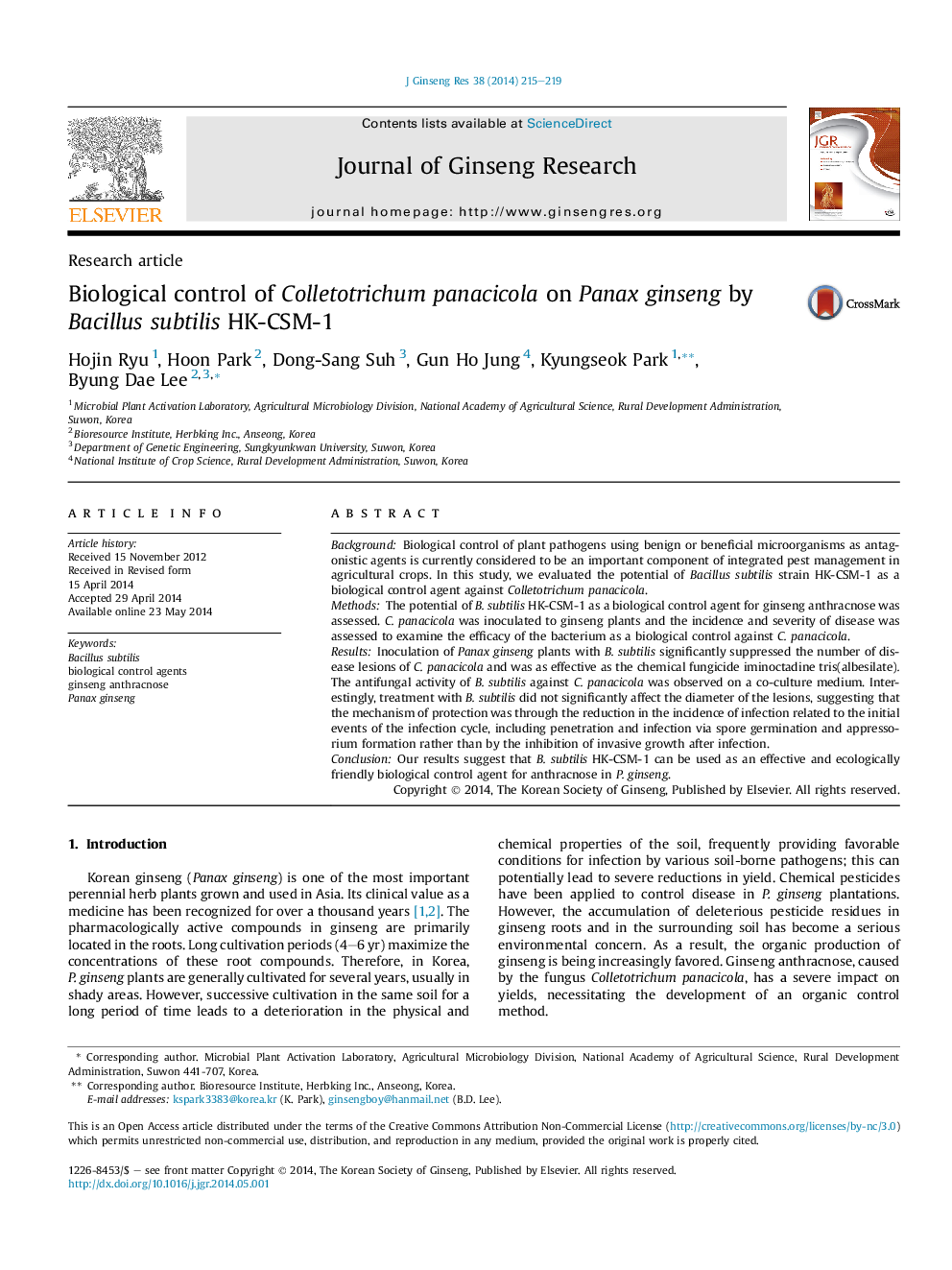| Article ID | Journal | Published Year | Pages | File Type |
|---|---|---|---|---|
| 3099284 | Journal of Ginseng Research | 2014 | 5 Pages |
BackgroundBiological control of plant pathogens using benign or beneficial microorganisms as antagonistic agents is currently considered to be an important component of integrated pest management in agricultural crops. In this study, we evaluated the potential of Bacillus subtilis strain HK-CSM-1 as a biological control agent against Colletotrichum panacicola.MethodsThe potential of B. subtilis HK-CSM-1 as a biological control agent for ginseng anthracnose was assessed. C. panacicola was inoculated to ginseng plants and the incidence and severity of disease was assessed to examine the efficacy of the bacterium as a biological control against C. panacicola.ResultsInoculation of Panax ginseng plants with B. subtilis significantly suppressed the number of disease lesions of C. panacicola and was as effective as the chemical fungicide iminoctadine tris(albesilate). The antifungal activity of B. subtilis against C. panacicola was observed on a co-culture medium. Interestingly, treatment with B. subtilis did not significantly affect the diameter of the lesions, suggesting that the mechanism of protection was through the reduction in the incidence of infection related to the initial events of the infection cycle, including penetration and infection via spore germination and appressorium formation rather than by the inhibition of invasive growth after infection.ConclusionOur results suggest that B. subtilis HK-CSM-1 can be used as an effective and ecologically friendly biological control agent for anthracnose in P. ginseng.
